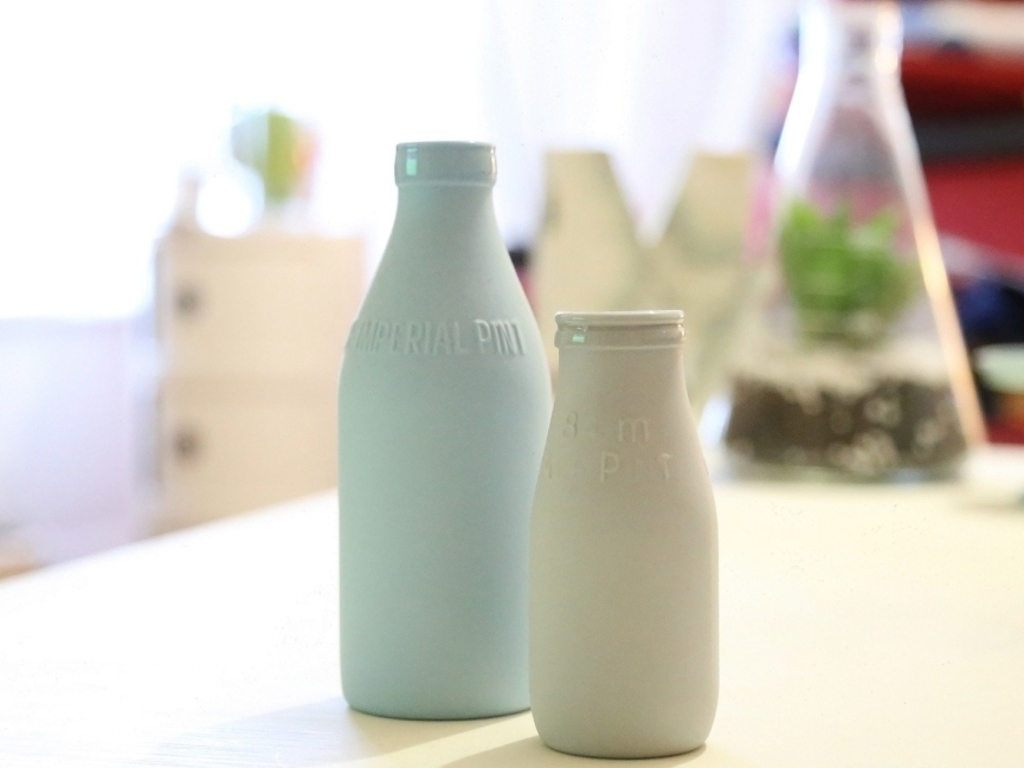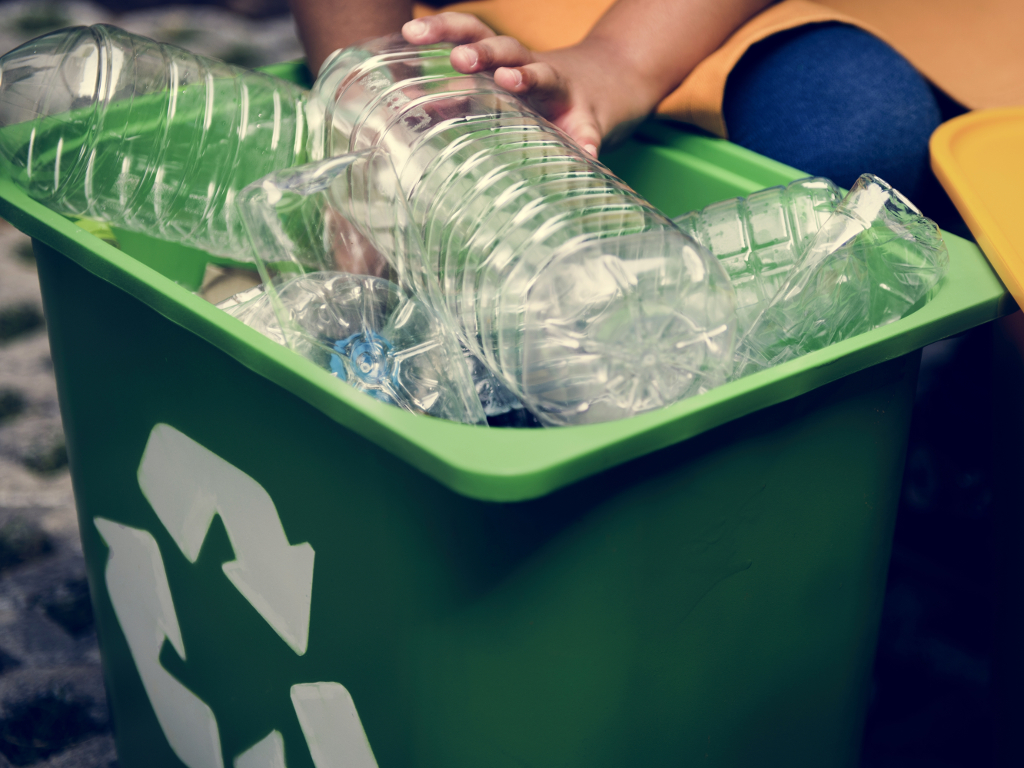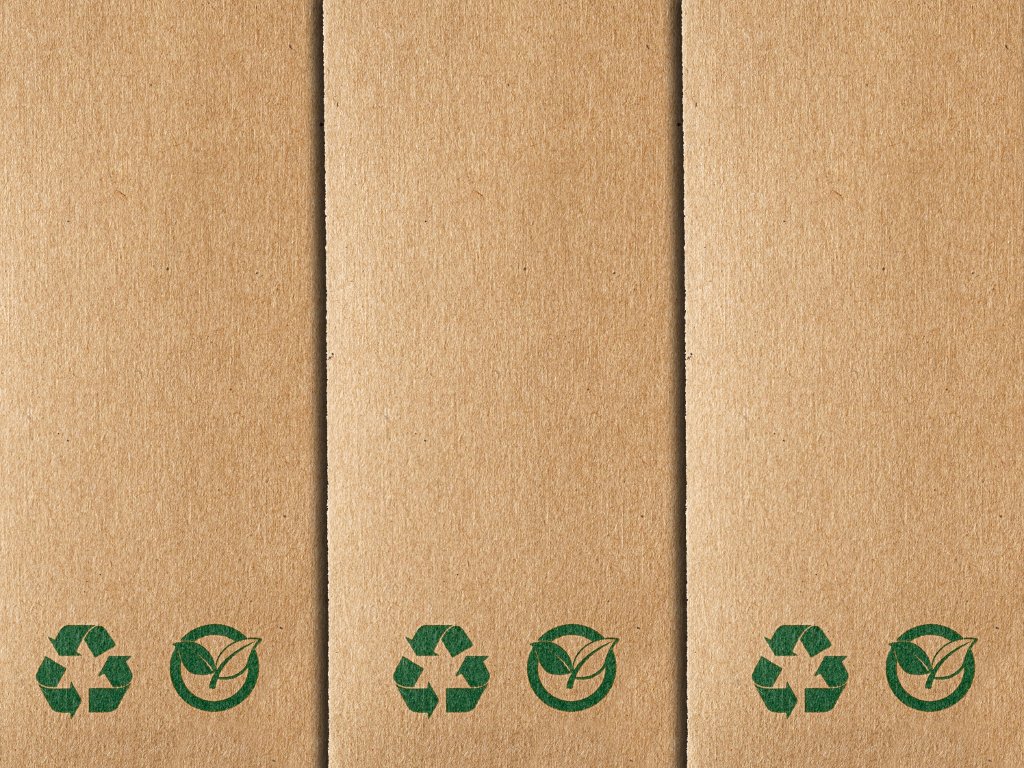From packaging to circular economy - How could deposit system transform recycling in Serbia?
Source: eKapija
 Tuesday, 08.04.2025.
Tuesday, 08.04.2025.
 00:11
00:11
 Tuesday, 08.04.2025.
Tuesday, 08.04.2025.
 00:11
00:11
Illustration (Photo: Pixabay/FoundryCo)

Packaging waste recycling in Serbia is constantly growing, but there is insufficient investment in the collection infrastructure and a new investment cycle will be needed for local governments, according to the Center for Circular Economy of the Serbian Chamber of Commerce.
According to data from the Report on Packaging and Packaging Waste Management for 2023, the amount of packaging placed on the Serbian market is about 403 thousand tons. In relation to that data, the Report on the State of the Environment in Serbia for 2023 shows that the amount of reused packaging waste is about 264 thousand tons, and about 250 thousand tons of recycled. Thus, the national goals in 2023 for the reuse of waste in the value of over 65% and for the recycling of waste over 62% have been fulfilled. On the other hand, according to Eurostat data for the year 2022, a total of 83.4 million tons of packaging waste was produced in the European Union, while the recycling level at the EU level is about 65%. Belgium with 80%, the Netherlands with 75%, and Slovakia with 72% are among the countries where the most recycling takes place.
The Government of Serbia recently adopted the Decree on establishing a plan to reduce packaging waste for the period from 2025 to 2029 which envisages an increase in the general objectives of recycling from 60% to 65% and reuse from 67% to 72%, while specific targets by 2029 include recycling 80% paper and cardboard, 90% PET bottles for beverage packaging, 54% glass and metal and 29% wood.
Ambitious goals
- From these figures, we can assume that the state`s intention to introduce a deposit system for beverage packaging, in order to reach these figures, and above all I mean PET, because European practice shows that such high percentages of recycling can only be achieved with a deposit system. Our system of extended producer responsibility has been operating for more than 15 years and the goals that are achieved come mostly from industry. In the future, the focus must be on citizens, because that is the only way we can clean our environment and reach the prescribed percentages, which is the common goal of citizens and the economy - Sanja Knežević Mitrović, head of the Environment Unit at NALED, tells eKapija.
That through the Regulation on the reduction of packaging waste for the period from 2025 to 2029 the Government of Serbia is accelerating policies and changes in the secondary raw materials market through ambitious goals of mandatory packaging recycling, they also believe in Center for Circular Economy of the Serbian Chamber of Commerce.
- It is a good direction for the ecosystem that needs to collect as much useful and recyclable material as possible. This whole process now has a chance to increase the efficiency of public utility services, change the habits of citizens and stop the destruction of natural resources and the pollution of Serbia through wild landfills and garbage dumps. The regulation provides an opportunity for a new investment cycle of investment in municipal waste infrastructure, especially for transport and treatment equipment. The vehicle fleet for transporting municipal waste is more than 18 years old, it is climatically very intensive in terms of carbon dioxide emissions, and the key tool for the success of the process is missing - the landfill tax. Without investments in the recycling of municipal waste, the cheapest way is to take the waste to a landfill or a dump - says the Center for Circular Economy.
As Knežević Mitrović points out, it is necessary to work on the improvement of the collection infrastructure and education of the population for the separation of different types of waste.
- Therefore, it is important that citizens have a place to take the selected waste, that receptacles are available and close to them, but also to know why they do it. Finally, we must not forget to improve the work of public utilities, because the bottom line is that there must be an effective system that supports it, to ensure that segregated waste is actually collected and recycled properly. In order for citizens to actively participate in waste separation, they must have confidence in the system - they need to be convinced that all the waste that can be recycled really ends up in recycling streams, and not in landfills - Knežević Mitrović points out.
According to our interlocutor, this requires a better organization of collection, transparency in the work of utility companies and clear communication with citizens about recycling results.
- PUCs have to create such an economic model that the quantities they collect are of high quality, that there are enough of them so that we would have profit from them for further investment in improving the system. There are also packaging waste management operators to help them throughout the process, but in return utility companies must ensure sufficient quantities of materials through their work - she states.
Illustration (Photo: Rawpixel.com/shutterstock.com)

Serbia needs new financing models
Subsidy system, adds Knežević Mitrović, only covers specific waste streams, while municipal waste is financially covered from the system of collection from citizens and businesses, and that packaging waste depends to a large extent on the cooperation of operators and public utilities.
- This largely determines the state of the recycling industry in Serbia, which faces sustainability challenges. In order to protect the domestic recycling industry, some of the measures that can improve their position are the creation of a single register of recyclers in order to monitor the quantities of recyclable materials which can be used as raw materials, motivating the collectors of recyclable materials to hand over the material to domestic, and not foreign recyclers, as well as the development of primary waste separation in order to achieve more efficient collection from households through public utility companies to the domestic recycling industry. It is necessary to introduce new financing models in order to support the development of the recycling industry. This includes strengthening cooperation with banks that offer "green bonds", as well as the use of funds from development funds and international financial institutions which support circular economy projects - she notes.
The introduction of these measures can, the interlocutor of eKapija points out, significantly contribute to the sustainability of the recycling industry in Serbia and its approach to European Union standards.
- In addition, a long-term solution requires a systemic approach which includes educating citizens about the importance of recycling, improvement of infrastructure for waste collection and introduction of more economically profitable circular economy models. Only through a combination of regulatory reforms, financial incentives and raising awareness of sustainable waste management it is possible to achieve a stable development of the recycling industry in Serbia - underlines Knežević Mitrović.
The deposit system as a key step
The introduction of a deposit system for packaging waste would, as she believes, improve the rate of recycling in Serbia. For successful implementation, as she emphasizes, legal changes are needed, including changes to the Law on Packaging and Packaging Waste, as well as the establishment of a depository organization with a key control role of the state.
- Based on the experiences of EU countries that already implement the deposit system, we believe that the same system could bring significant changes in Serbia as well. NALED has been promoting this idea for several years through the Gray Book, which includes recommendations for the introduction of an industry-led deposit system for the return of beverage packaging. This system would use digital solutions and BAT technology, and before the start of implementation, legislative changes need to be adopted and for the industry to be ready for application - explains Knežević Mitrović.
This system, she adds, allows users to return the packaging to the designated places and get a refund, which should encourage a higher level of recycling and reduce the amount of waste that ends up in landfills - she says.
Illustration (Photo: Ruslan Khismatov/shutterstock.com)

What is the role of the economy?
The role of the economy in the recycling process is key to the successful functioning of the packaging waste management system, they point out from the Center for Circular Economy, PKS.
- Companies, as packaging manufacturers, product distributors and end users, have a significant responsibility in reducing the amount of waste, its proper disposal and increasing the recycling rate. An efficient recycling system largely depends on their involvement, both in terms of waste reduction, and through innovation, cooperation with local authorities and investment in infrastructure - they say.
According to them, companies can contribute in several ways. First, by reducing the use of packaging, that is, by switching to environmentally friendly materials and by reducing unnecessary packaging, companies can have a direct impact on reducing waste.
One of the ways is to improve the recycling system, and by introducing internal systems for waste collection and recycling, companies can contribute to a more efficient circular system.
Companies can contribute by cooperating with recycling centers and local governments. A partnership between companies, the public sector and the recycling industry can significantly improve the recycling process.
Applying the concept of Extended Producer Responsibility (EPR) can also be helpful. This concept implies the implementation of a system in which producers bear responsibility for the waste generated from their products, which would encourage greater investment in recycling capacities.
How interested are investors?
Interest in investments in recycling infrastructure in Serbia exists, both from domestic and foreign investors, according to the Center for Circular Economy. However, challenges such as an unstable legislative framework, lack of incentives and administrative obstacles hinder the faster development of this sector.
- Foreign investors have shown interest in investing in modern recycling centers, but it is necessary to improve the regulation in order to attract more investments. The introduction of tax breaks and subsidies for recycling projects could encourage the development of this industry and contribute to an increase in the recycling rate in Serbia - they emphasize.
NALED`s initiatives to improve recycling
NALED, through the Alliance for Environmental Protection and in cooperation with its members, conducted two analyzes on this topic - Analysis of the introduction of the deposit system for beverage packaging in Serbia and Analysis of the improvement of the extended producer responsibility system in the context of the introduction of deposits.
That was the starting point for defining the joint recommendations of the Alliance on this topic.
- In addition, NALED advocates through the Gray Book for the introduction of a deposit system for beverage packaging, and for environmental protection fees to be used through a special Green Fund which would enable efficient financing of projects with a significant contribution to the improvement of the environment and waste management - Knežević Mitrović points out.
Over the years, they have carried out numerous projects on the topic of packaging waste management. One of the projects that they are currently implementing is in the final phase and directly relies on providing support for solving packaging and municipal waste management issues. It is about the cross-border cooperation project of Serbia and Montenegro "BEST Cooperation in waste management - Towards a sustainable environment".
- The main goal of the project is to improve waste management and strengthen the capacity of public utilities for collection and primary selection of waste, with the objective of increasing the amount of recycled waste in the border area between Serbia and Montenegro. During the project, thematic trainings for employees in all partner local governments were conducted and public policy documents prepared, among which they are the Analysis of the situation for establishing a system for managing packaging waste in Montenegro and the Analysis of the situation and recommendations for glass packaging waste management for Novi Pazar. Also, Novi Pazar and Mojkovac received 2,000 bins for separating packaging waste through the project and the municipality of Mojkovac a press for baling waste, in order to reduce the amount of waste that ends up in local landfills - she says.
One of the completed projects dealing with this topic was "Glass Packaging Management in the Western Balkans", which aimed to improve the collection and recycling rate of glass packaging through the establishment of appropriate infrastructure and effective waste collection and separation management.
- The project was also dedicated to raising the awareness of citizens and businesses about the importance of glass packaging recycling, while strengthening cooperation between local self-governments, utility companies and the economic sector in order to improve the waste management system. Also, a system of so-called "smart" packaging collection was piloted in Zrenjanin. where the packaging return system in dedicated machines was tested, but in such a way that each unit of packaging is marked with a unique data matrix code specific to that particular package. We carried out both of these projects with the support of GIZ and companies from our membership - Knežević Mitrović says.
In addition to these, NALED also implemented projects in the field of waste management, which also related to food waste and edible oils, batteries and light bulbs, and we have projects related to the collection and use of construction waste and waste vehicles in the plan.
- We intend to continue dealing with this topic through the Alliance for Environmental Protection and cooperation with relevant actors - says our interlocutor.
Ivana Žikić

Click here to see the entire Special Edition Newsletter
"ECONOMICALLY ECOLOGICAL - Green is the new black"
read more
Tags:
NALED
BEST Cooperation in waste management Towards a sustainable environment
Management of glass packaging in the Western Balkans
Regulation on establishing a plan to reduce packaging waste
packaging waste
packaging waste recycling
special edition newsletter economically ecological green is the new black
tb green is the new black
Comments
Your comment
Naš izbor
Most Important News
Full information is available only to commercial users-subscribers and it is necessary to log in.
Follow the news, tenders, grants, legal regulations and reports on our portal.
Registracija na eKapiji vam omogućava pristup potpunim informacijama i dnevnom biltenu
Naš dnevni ekonomski bilten će stizati na vašu mejl adresu krajem svakog radnog dana. Bilteni su personalizovani prema interesovanjima svakog korisnika zasebno,
uz konsultacije sa našim ekspertima.


 Izdanje Srbija
Izdanje Srbija Serbische Ausgabe
Serbische Ausgabe Izdanje BiH
Izdanje BiH Izdanje Crna Gora
Izdanje Crna Gora


 News
News











